Hand hygiene
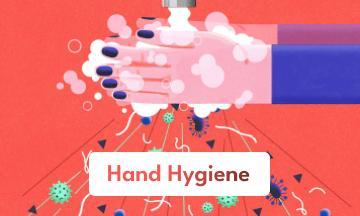
Hand hygiene is the act of cleaning your hands to prevent the spread of germs, bacteria, and viruses. It is a simple yet effective way to prevent the spread of illnesses and diseases. Hand hygiene is important in all aspects of life, whether at home, school, or work. It is especially critical in healthcare settings, where healthcare workers come in contact with patients and their bodily fluids on a daily basis.
The importance of hand hygiene cannot be overstated. It is estimated that proper hand hygiene can reduce the transmission of germs by up to 50%. This simple practice can prevent illnesses such as the common cold, flu, and other infectious diseases like COVID-19.
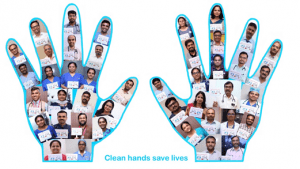
There are two ways to clean your hands: hand washing and hand sanitizing. Hand washing involves using soap and water to clean your hands thoroughly, while hand sanitizing involves using an alcohol-based hand sanitizer to kill germs on your hands.
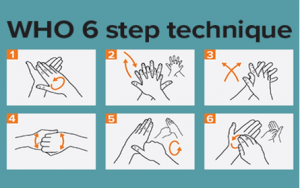
Following all the recommended steps for hand hygiene is essential to ensure that your hands are thoroughly cleaned and free of harmful pathogens. The World Health Organization (WHO) recommends that when washing your hands with soap and water, you should rub your hands together for at least 40 seconds, making sure to cover all surfaces of your hands, including the web spaces between your fingers, the tips of your fingers, and your thumbs. Rinse your hands thoroughly and dry them with a clean towel or air dry them.
Hand sanitizing is a quicker alternative to hand washing, but it should not replace hand washing entirely. When using hand sanitizer, make sure to use enough to cover all surfaces of your hands and rub it in until your hands are dry. Hand sanitizer should be used when soap and water are not readily available, but it should not be used if your hands are visibly dirty.
Studies have shown that these frequently missed areas can harbor a significant amount of pathogens, which can lead to the transmission of infectious diseases. By paying close attention to these areas and making sure to thoroughly clean them during hand washing, you can significantly reduce your risk of getting sick or spreading infections to others.
Additionally, it is important to wash your hands frequently throughout the day, especially before and after certain activities, such as using the restroom, eating or preparing food, after blowing your nose, coughing or sneezing, and after coming into contact with someone who is sick.
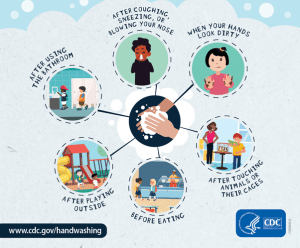
By practicing good hand hygiene consistently and thoroughly, you can help protect yourself and those around you from harmful pathogens and illnesses. Proper hand hygiene is essential to prevent the spread of infections and diseases. It is a simple yet effective way to protect yourself and others from illness. Remember to always wash your hands with soap and water, or use hand sanitizer when soap and water are not readily available. By practicing good hand hygiene, you can help keep yourself and those around you healthy and safe.
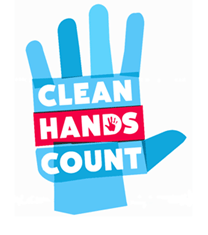
Dr. Parinitha
Head Clinical Microbiology
Ramaiah Hospital.

